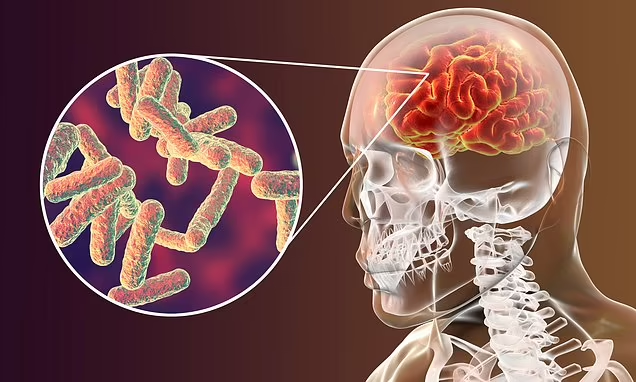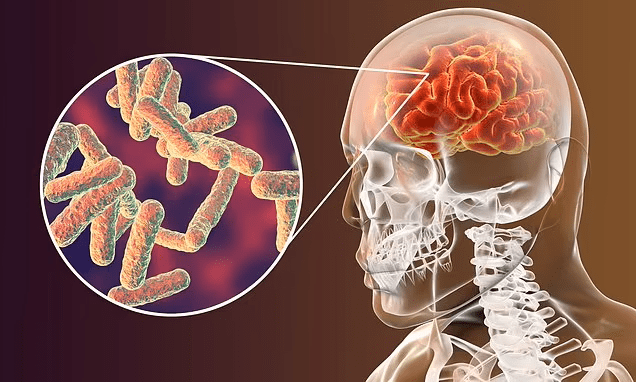A private school in Kerala, India, has temporarily suspended all classes until March 16 following the confirmation of five cases of viral meningitis among students aged 7 to 8. Health officials have taken immediate action, sending samples to the National Virology Institute for further testing to determine the specific virus responsible for the outbreak.

The affected children are under medical supervision, and the school has initiated deep cleaning and sanitation measures to prevent further spread. Parents and local authorities have been urged to monitor symptoms in children and ensure they follow preventive guidelines.
Understanding Viral Meningitis
Viral meningitis is an inflammation of the meninges, the protective membranes covering the brain and spinal cord. While it is generally less severe than bacterial meningitis, it still poses significant health risks, particularly for young children, the elderly, and individuals with weakened immune systems. Unlike bacterial meningitis, which requires immediate antibiotic treatment, viral meningitis often resolves on its own, though severe cases may require hospitalization and supportive care.
Common Causes of Viral Meningitis
According to the Centers for Disease Control and Prevention (CDC), several viruses can cause viral meningitis, including:
- Non-polio enteroviruses – The most common cause, particularly in late summer and early fall.
- Arboviruses – These include mosquito-borne viruses such as the West Nile virus.
- Herpesviruses – Viruses like Epstein-Barr, Herpes simplex, and Varicella-zoster can trigger meningitis.
- Influenza virus – The flu can sometimes lead to complications, including viral meningitis.
- Measles and mumps viruses – In unvaccinated individuals, these viruses have been known to cause meningitis as a secondary complication.
Symptoms to Watch For
Viral meningitis symptoms can resemble those of bacterial meningitis but are typically less severe. Key symptoms include:
- Fever
- Severe headache
- Stiff neck
- Nausea and vomiting
- Sensitivity to light (photophobia)
- Confusion or difficulty concentrating
In infants, symptoms may also include irritability, poor feeding, vomiting, and a bulging soft spot on the head (fontanelle).
Preventive Measures
Health authorities stress that while there is no specific antiviral treatment for most cases of viral meningitis, prevention plays a crucial role in reducing the risk of infection. The following steps can help protect individuals and communities:
- Regular handwashing with soap and water, particularly after using the restroom, changing diapers, or handling food.
- Avoiding close contact with individuals who show signs of illness, such as fever or respiratory infections.
- Cleaning and disinfecting frequently touched surfaces to minimize viral spread.
- Staying home when sick to prevent the transmission of infections in schools and workplaces.
- Protecting against mosquito bites by using insect repellent and wearing long sleeves, particularly in areas where mosquito-borne viruses are prevalent.
- Keeping up with vaccinations, including those for measles, mumps, influenza, and chickenpox, which can prevent viral infections that may lead to meningitis.
Public Response and Next Steps
Local health officials continue to monitor the situation closely. The Kerala health department has urged parents to remain vigilant and seek medical attention immediately if their children exhibit symptoms associated with viral meningitis. Schools and public institutions are reinforcing hygiene protocols, and awareness campaigns are being launched to educate communities on preventive measures.
The school at the center of the outbreak has assured parents that all necessary precautions are being taken. Medical teams are on standby to conduct health screenings, and further updates will be provided based on the results from the National Virology Institute.
Authorities emphasize that while viral meningitis is not usually life-threatening, early detection and proper management are essential for preventing complications. The public is advised to stay informed, follow health guidelines, and seek professional medical advice if they suspect symptoms of meningitis.
For more detailed information, visit the Centers for Disease Control and Prevention (CDC) website or refer to the latest updates from local health departments.









Comments are closed.